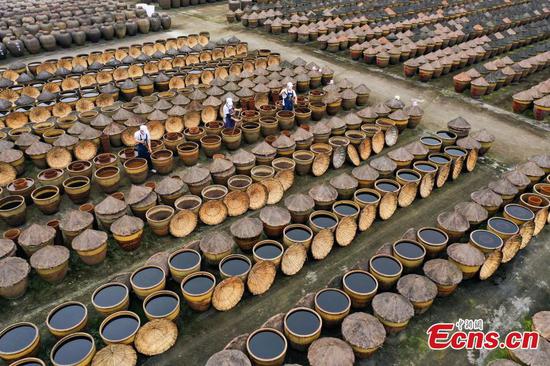Chinese authorities approved new Brazilian meat-exporting plants on Tuesday, according to the Brazilian Agriculture Ministry, a highly anticipated move to benefit people in both countries.
The 13 newly approved units feature five pork, five beef and three poultry plants, according to the ministry's statement.
"The Brazilian pork sector has an opportunity to strengthen the partnership to help China with its plans for food security," Ricardo Santin, CEO of the Brazilian Association of Animal Protein (ABPA), said. "Both nations are exploring this partnership."
China has increased imports of pork in recent years to meet demand from domestic consumers, especially since the outbreak of African swine fever late last year, which has caused significant drops in local pork supplies.
China imported nearly 1.2 million metric tons of pork in the first eight months of the year, almost equivalent to the total amount imported last year, according to China's General Administration of Customs. Major exporters included Germany, Canada, Brazil and the United States.
Last year, China imported about 155,000 tons of pork from Brazil with a total value of $155 million. Between January and September this year, China has already imported 157,000 tons of pork from Brazil with a total value of $360 million, surpassing last year's total, according to ABPA.
Santin said the quality of Brazilian pork and high sanitary standards were assured.
More than 40 years have passed since the last African swine fever alert was issued in Brazil, and favorable natural conditions help produce quality feed for pigs, which makes Brazil a viable long-term partner for China in pork supplies, he said.
Intensified cooperation in the agricultural sector benefits both nations, and Brazil and China can improve their knowledge about production, technologies, sanitary control and crisis management in the pork sector, Santin said.
Zhu Zengyong, a pork industry researcher at the Chinese Academy of Agricultural Sciences, said that over the past few years, China has seen rapid growth in the importation of pork from South American countries, including Brazil.
In the first three months of this year, about one third of all pork Brazil exported went to the Chinese market, he said. Last year, Brazil accounted for nearly 13 percent of all pork China imported, according to data from the General Administration of Customs.
China is the world's largest producer of pork, which is the most commonly consumed meat in the country, accounting for half of the world's total production.
However, African swine fever outbreaks since August last year have caused a supply shortage of pork in China and boosted imports. Pork imports may exceed 2 million tons next year, according to a report released by Chinese Academy of Agricultural Sciences earlier this year.


















































